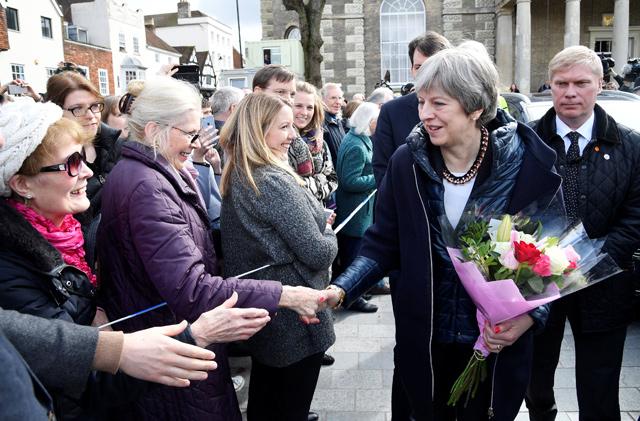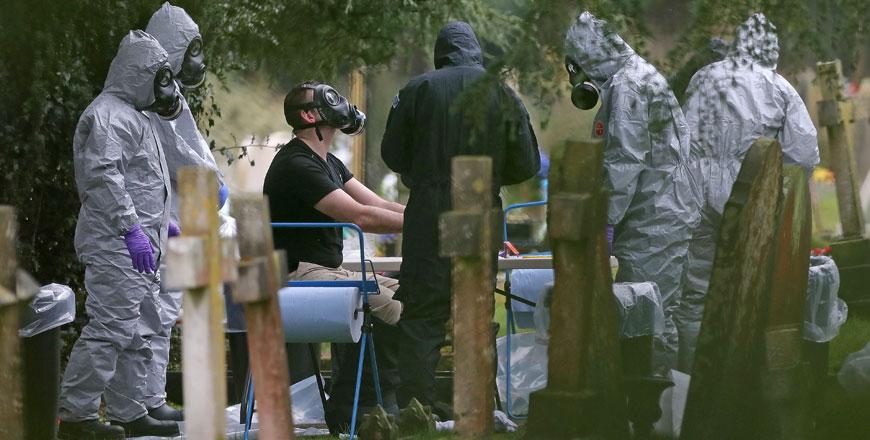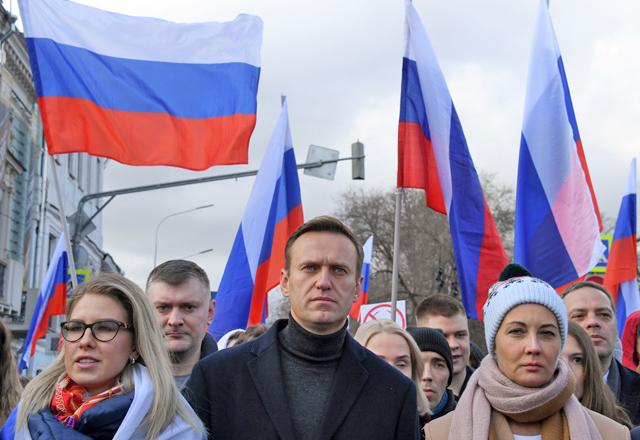You are here
UK, US, France, Germany point to Russia over spy attack
By AFP - Mar 15,2018 - Last updated at Mar 15,2018

Britain's Prime Minister Theresa May (second right) meets members of the public during her visit to Salisbury, southern England, on Thursday, where she visited the areas where former Russian double agent Sergei Skripal and his daughter Yulia went to, and were discovered at, following an apparent nerve agent attack on March 4 (AFP photo)
LONDON — Britain, France, Germany and the United States condemned a nerve agent attack on a Russian ex-spy and his daughter, saying there was "no plausible alternative explanation" to Moscow's involvement.
"We, the leaders of France, Germany, the United States and the United Kingdom, abhor the attack that took place against Sergei and Yulia Skripal in the English city of Salisbury on March 4, “said the rare joint statement issued by the British government.
"We share the UK assessment that there is no plausible alternative explanation, and note that Russia's failure to address the legitimate request by the UK government further underlines its responsibility."
Britain has linked the attack to Soviet-designed nerve agents known as Novichok, and accused Moscow of failing to explain how the poison came to be used on English soil.
"We call on Russia to address all questions related to the attack in Salisbury," the four world powers said in their statement.
"Russia should in particular provide full and complete disclosure of the Novichok programme to the Organisation for the Prohibition of Chemical Weapon."
The Salisbury poisoning is the first offensive use of a nerve agent in Europe since the World War II.
It amounts to "a breach of international law. It threatens the security of us all", the US and European leaders said.
Novichok — or "newcomer" in English — refers to a group of powerful and deadly chemical compounds reportedly developed by the Soviet government in the 1970s and 1980s, some of which were adopted by the Soviet army in 1990.
Almost everything in the public domain comes from Russian defectors who revealed the existence of the secret weapons programme in the 1990s, including a former chemist who wrote a book about them.
The aim of the nerve agents appears to have been to circumvent international conventions banning chemical weapons by developing compounds with new structures that would escape detection, experts say.
Related Articles
BRUSSELS — The EU on Wednesday agreed to impose sanctions on six people and one entity over the poisoning of Russian opposition leader Alexe
LONDON, United Kingdom — The world's chemical arms watchdog on Thursday said it had confirmed Britain's findings that a nerve agent used in
BERLIN — Tensions deepened between Germany and Russia over the alleged poisoning of opposition figure Alexei Navalny on Sunday, with Germany


















